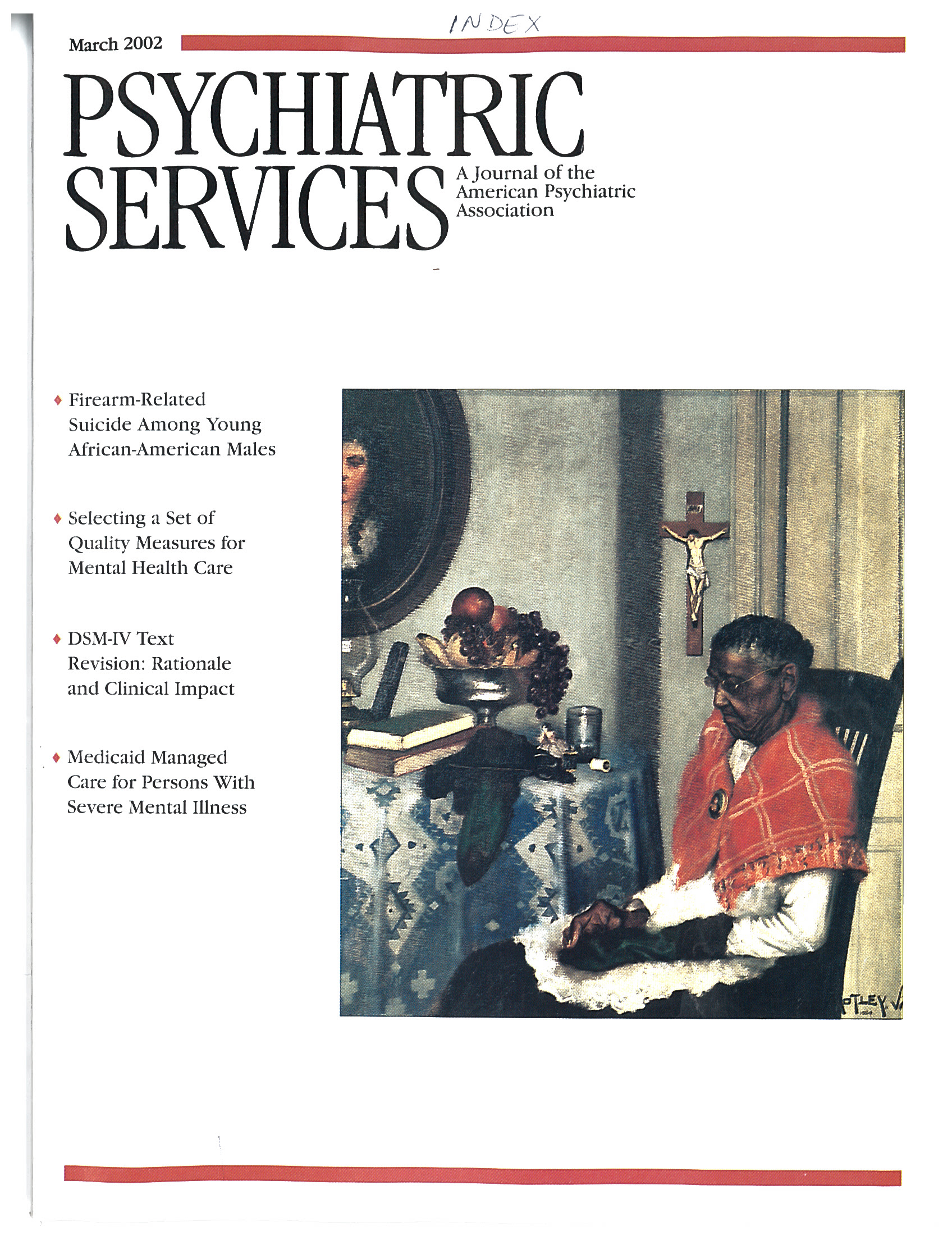To the Editor: Sexual side effects associated with psychotropic medications, including antipsychotic agents, are increasingly recognized. Shiloh and colleagues (
1) recently reported the case of a 37-year-old man with schizophrenia who developed retrograde ejaculation while taking 4 mg of risperidone a day. Retrograde ejaculation is presumably related to alpha
1-adrenergic receptor antagonism (
2). Compared with other antipsychotics, risperidone is a potent alpha
1-adrenoreceptor antagonist with a high affinity (Ki of .69) (
3). The effects of sexual dysfunction on compliance with medication regimens have not been fully elucidated. Two cases of ejaculatory disturbance associated with risperidone treatment and its negative effects on compliance are described here.
Mr. A was a 36-year-old African American who was being treated in a community mental health setting for schizoaffective disorder, bipolar type, which had necessitated many hospitalizations. At one appointment, he complained that although he experienced a normal sensation of orgasm, the prescribed risperidone (6 mg a day) "kills off my spermatozoa—when I reach the point of ejaculation, nothing comes out." He admitted to incomplete compliance with risperidone because of this problem and expressed worries related to sterility and his masculinity. He had been noncompliant with risperidone on many occasions over the past several years, but no reason for noncompliance was documented in his record. Mr. A was also taking 1,000 mg of divalproex sodium a day.
Mr. B was a 30-year-old Caucasian with a diagnosis of schizophrenia and a history of four hospitalizations who was brought to an emergency receiving facility because of an exacerbation of paranoid delusions and poor medication compliance for about three months. His prescribed medication regimen was 3 mg of risperidone a day. Although Mr. B was quite guarded, anxious, and paranoid, the clinician explored reasons for his noncompliance. Mr. B complained of "weight gain, increased appetite, and problems with my ejaculation." When he was asked to elaborate, he stated that he had "problems with it coming out—too little," but he refused to discuss it further.
These two cases are informative about the effects of risperidone on ejaculatory function, but, perhaps more important, they illustrate the potential for sexual side effects to cause medication noncompliance among patients with severe and persistent mental illness. Although postorgasmic urine samples were not obtained to confirm retrograde ejaculation, the patients' reports, especially in the first case, indicate the probable presence of this condition.
Several antipsychotic agents have been associated with ejaculatory disturbances (
2). The two cases demonstrate the importance of recognizing sexual side effects among patients treated with antipsychotic agents and their potential impact on compliance.

